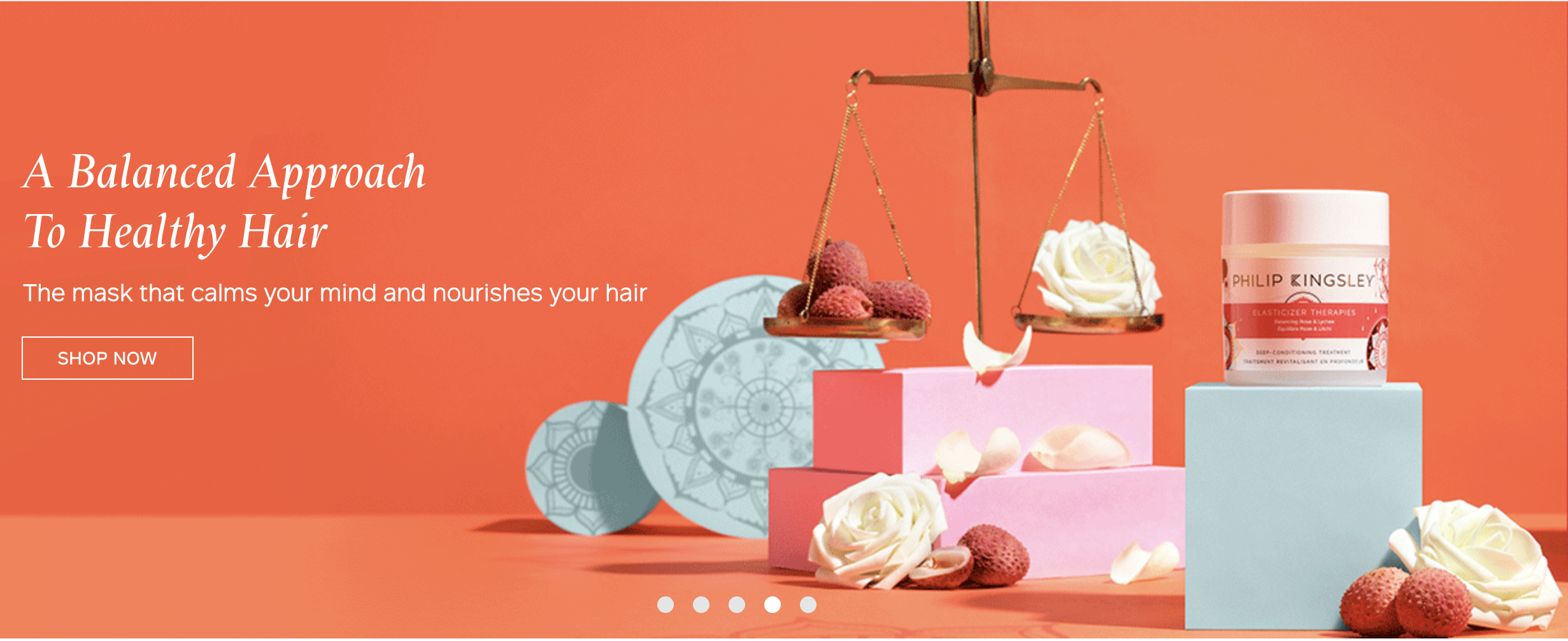Philip Kingsley is a leading Trichological haircare brand (you may be familiar with the legendary Elasticizer created for Audrey Hepburn).
I worked with the Marketing team on providing campaign copy, social ad copy, website copy, email copy, and copy for printed material like direct mail. I helped plan the launch of Philip Kingsley’s blog, The Long & Short of It including naming, content strategy and blog writing. The brand also launched their new packaging and sustainability initiative for which I wrote the copy.
Coffee at Le Café Alain Ducasse
Chef Alain Ducasse loves provenance and he loves singling out much loved ingredients that he can exalt to the next level. This was successfully demonstrated with Le Chocolat, his shop that only sells chocolate. And now we have Le Café focusing on of course, coffee.
The multi Michelin star-awarded chef scours the world for the best beans you can possibly taste. No detail is overlooked in his desire to share an extraordinary tasting experience. At the bar, you can sample some of the finest blends and single origins on the market, all presented with flourish and dynamism by the in-house expert cafeliers; their passion is palpable. Choose from filter, espresso, infusion, capsule or cold brew depending on how you feel or extraordinary coffee-based takes on cocktails like the Negroni. We love this sense of personalisation and we can see parallels with how we work in our Clinics; our desire to share knowledge and expertise is at the core of everything we do. In fact, we do actually include skin-stimulating caffeine in some our formulations so we’re fully on board with this ingredient. A cup of perfectly roasted coffee that has been grown in the best way and served exquisitely, really is an absolute pleasure. We know the jury is still out on whether coffee is good for you or not but as our founder Philip Kingsley would have said, “A little of what you fancy won’t do you harm” – everything in moderation.
Drinks start at £2.50 for an espresso to £15 for the famous filter Yemeni coffee. Everything is presented in beautiful bespoke glassware (even the free filter water) providing a real sense of ceremony. And if coffee is not your thing, who could resist the intense hot chocolate (£5)? With Ducasse ensuring the best possible quality in all he does, you’re in good hands at Le Café (just as you are at the Philip Kingsley Clinic!).
You may have heard of shinrin-yoku recently, particularly as it was an inspiration for the garden co-designed by the Duchess of Cambridge at the 2019 Chelsea Flower Show. But it is also currently attracting interest from GPs as a way to prescribe a wellbeing boost.
Shinrin-yoku originates from Japan and translates as forest bathing. It is a relaxing activity based on the belief that spending time amongst trees is good for the body and mind. There’s no actual bathing involved – just a gentle immersion in the calm of the woods. In fact, Japanese scientific studies prove this, citing phytoncides (chemicals emitted by trees and plants) as beneficial for the immune system, and that forest bathing can reduce blood pressure, lower cortisol levels, and improve concentration and memory. Now that this natural way to relax is spreading across the world, the Forest Bathing Institute in the UK is replicating some of those studies to explore the benefits further.
It’s not just about going for a walk though, it’s about being mindful, allowing yourself to wander and idly enjoying your surroundings without putting emphasis on getting somewhere. Spending time in the woods, listening to the sounds of birds and animals, taking in the scents of different barks and saps, and noticing the different shades of colour as the light filters through the trees can really help bring back a sense of balance. If you feel like you need a little support and direction on how to fully enjoy the benefits of forest bathing, there are even various group walks that you can join up and down the UK on Meet Up.
We’re lucky that London is one of the greenest capital cities in Europe with many parks and wooded areas accessible throughout the boroughs. You could even make a trip of it and take a tube journey to Highgate Wood in the north, Richmond Park in the west, Sydenham Hill Wood in the south, or Epping Forest in the east. When we’re in New York, there are of course wooded areas to be found in Central Park, but we think it’s a great excuse to head upstate for a quick getaway to Ferncliff Forest or to spend a weekend in the Catskills.
At Philip Kingsley we care greatly about the future of our forests, they are the lungs of the planet and offer more support to life on earth than we can imagine. That’s why all our cardboard packaging is Forest Stewardship Council approved material, meaning that the cardboard has been produced from responsibly managed forests. We have also recently started using bioplastic for our bottles. This is plastic that has been produced from bio-ethanol, a by-product from sugarcane farming. Because sugarcane absorbs carbon while it is photosynthesising during its growth phase, our plastic bottles are not just carbon neutral, they are carbon negative. The amount of carbon produced is less than that which is absorbed lowering our carbon footprint and caring for the planet.



















